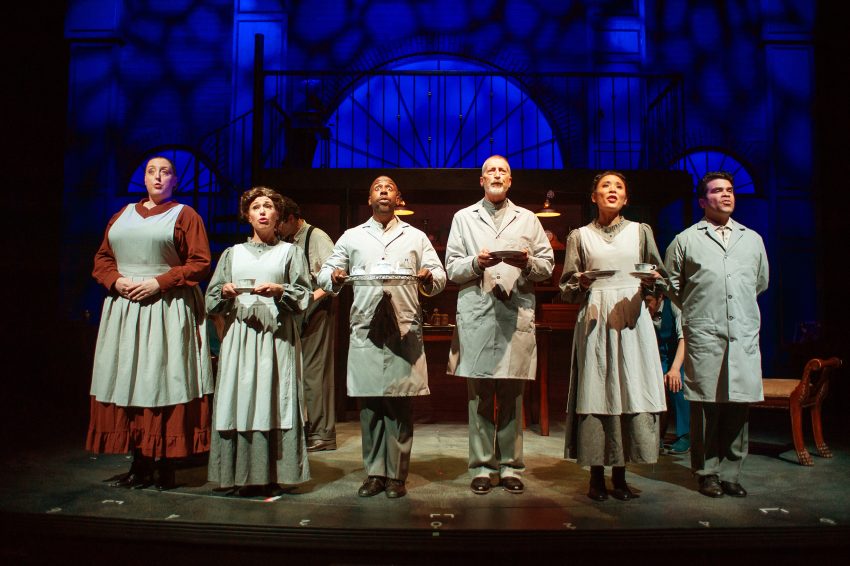
“My Fair Lady” Hits Perfect Pitch of Cockney Comedy—at SF Playhouse
Millennial Notes
Lerner & Loewe’s Songs Renew Dream of “A Room Somewhere”
by Isa S. Chu
At SF Playhouse, “My Fair Lady” sings a new tune—full of laughter, sharp commentary, and a knowing nod to the politics of speech.
Lerner and Loewe’s beloved musical gets a buoyant, comedic revival with subtle comments on language, power, and identity. Based on Bernard Shaw’s “Pygmalion,” the show hits home for Americans who grew up watching our immigrant parents navigate the rocky terrain of “proper” English.
Speaking with an accent has always been a convenient excuse for the ruling class to diminish, exclude, and control immigrants. SF Playhouse doesn’t shy away from that tension. Director Bill English picks apart the musical comedy’s class politics, linguistic hierarchies, and inherited prejudices. He reminds us that language can be used to control what Shaw ironically calls the “undeserving poor.”
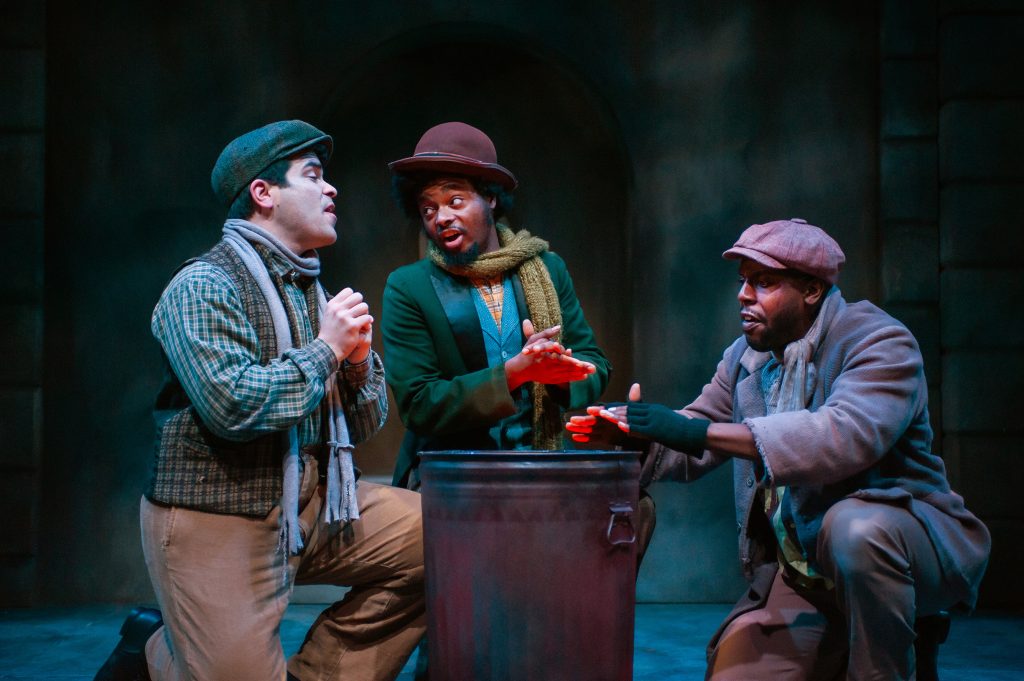
As comic flower girl Eliza Doolittle, Jillian A. Smith brings a radiant warmth and quiet determination to the Cockney-accented role. Smith plays Eliza as the beating heart of her own transformation. She’s far from the passive subject of a gentleman’s bet.
Even at her roughest, Eliza sees the possibility of something more. Smith’s Eliza summons the courage to ring the doorbell and offer to pay what little she has in hope of building a better life.
Adam Magill’s Professor Henry Higgins embodies the entitled swagger of someone who’s never been challenged, full of pompous bravado. Magill walks a fine line between insufferable and intriguing, infusing Higgins with just enough vulnerability to keep us wondering if “the Man” might, one day, learn something.
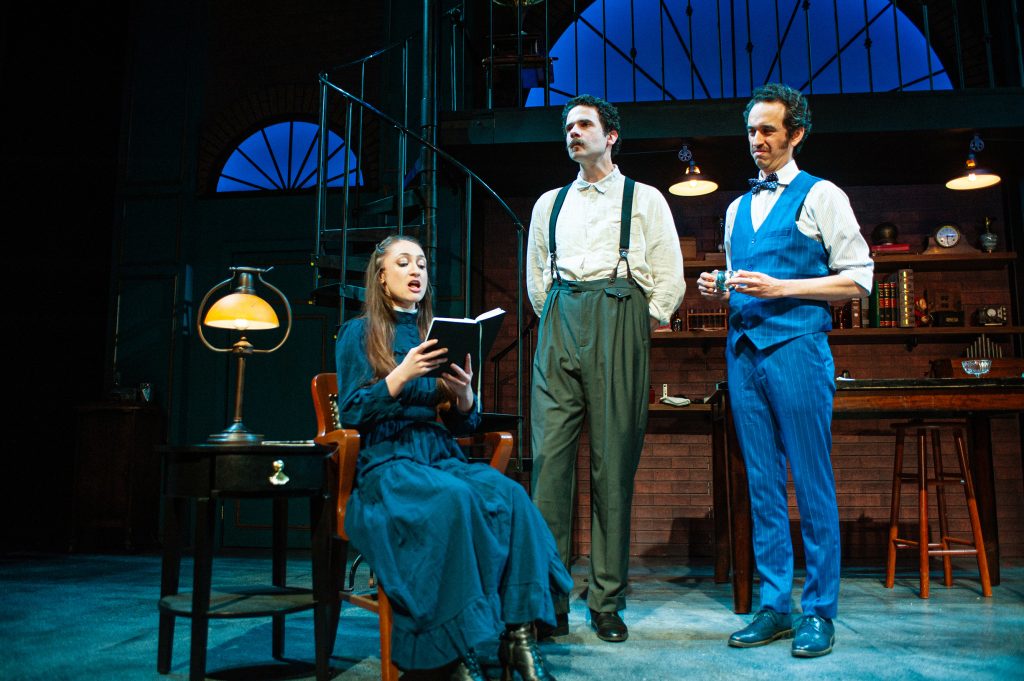
Meanwhile, Jomar Tagatac steals our hearts as Eliza’s father, garbage worker Alfred P. Doolittle, with charming chaos. His raucous “Get Me to the Church on Time” brings down the house with his impeccable comedic timing and a glorious, tipsy swagger. He embodies our complicated dance with money and class: resisting the system while secretly craving its comforts.
We also catch sly reinterpretations: Colonel Pickering (endearing Brady Morales-Woolery) wins our heart with his lingering glances at Higgins, adding a queer subtext.
As Higgins’ housekeeper Mrs. Pearce, marvelous Heather Orth rolls her eyes during “A Hymn to Him,” adding a knowing feminist commentary.
As Freddy Eynsford-Hill, Nicholas Tabora’s swooning tenor version of “On the Street Where You Live” satirizes the melodrama of a pampered rich kid. Tabora’s Freddy mistakes infatuation for love.
At the snooty Ascot races, Eliza wears a tailored pantsuit with a dramatic dress-train, signaling her growing strength. Eliza is fully in control, walking away from Higgins and the version of herself shaped by others.
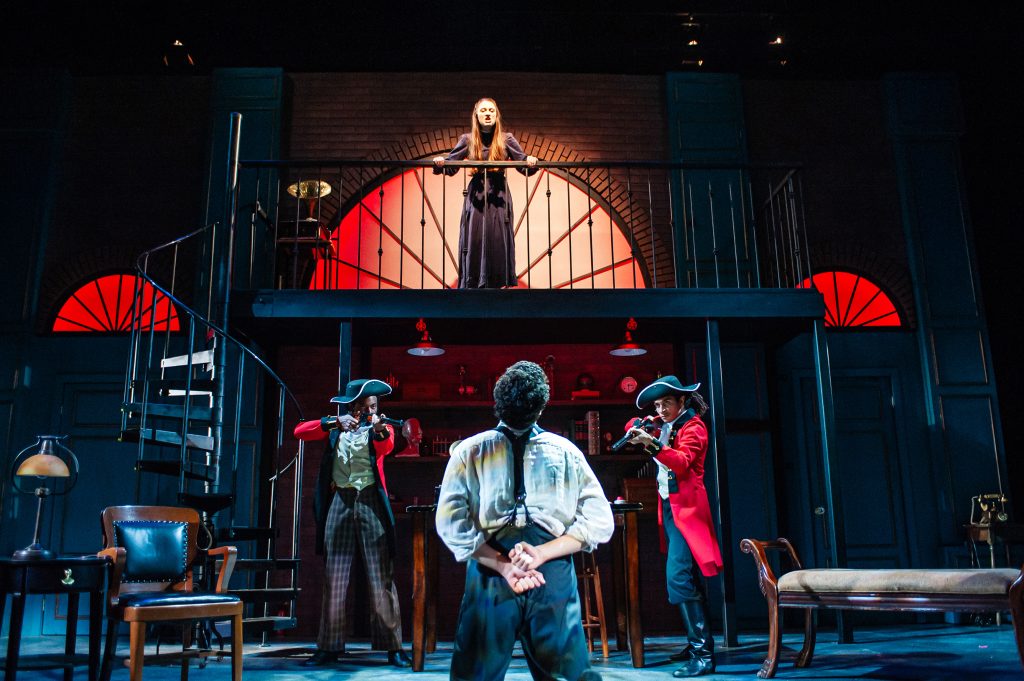
While some accents slip, the musical highlights the joy of comradery. SF Playhouse’s “My Fair Lady” reclaims Bernard Shaw’s sharp social critique with sparkle and humor. We laugh, reflect, and hum along, hopeful that in a world shaped by who gets to speak and who gets heard, inequality can still be challenged.
Bill English’s ensemble forms the backbone of the show. Sublime from start to finish, the company brings texture, humor, and vitality to every scene. From the warm, rich quartet harmonies of “Wouldn’t It Be Loverly?” to the playful precision of “The Servants’ Chorus,” the ensemble elevates the musical with seamless energy and polish.
Let’s hope that more “Loverly” days are on their way.
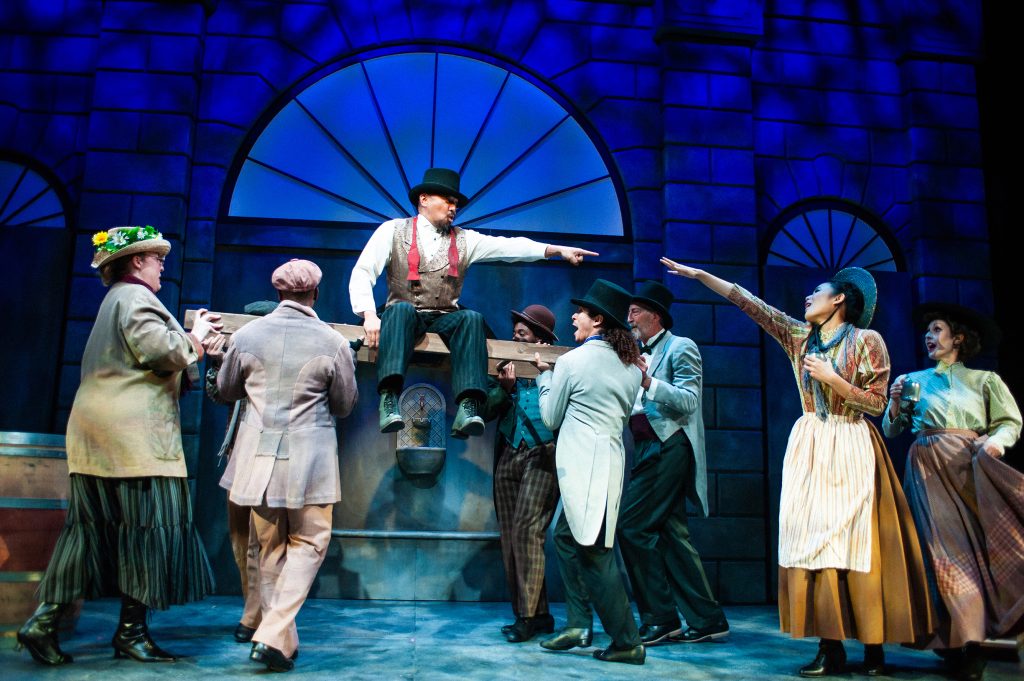
“My Fair Lady” –book/lyrics by Alan Jay Lerner, music by Frederick Loewe, original production directed by Moss Hart, adapted from George Bernard Shaw’s “Pygmalion” and Gabriel Pascal’s motion picture Pygmalion.
Directed by Bill English, music direction by Dave Dobrusky, choreography by Nicole Helfer, scenic design by Nina Ball, costumes by Abra Berman, lighting by Michael Oesch, and sound by James Ard.
Info: sfplayhouse.org – to Sept. 13, 2025.
Cast: Jillian A. Smith, Adam Magill, Brady Morale-Woolery, Nicholas Tabora, Jomar Tagatac, Heather Orth, Jill Slyter, Chachi Delgado, Andy Collins, Jurä Davis, Julio Chavez, Jill Jacobs, Kareem Jenkins, BrieAnne Alisa Martin, and Dian Meechai.
Banner photo: Professor Higgins’ staff—Heather Orth, BrieAnne Alisa Martin, Jurä Davis, Andy Collins, Dian Sitip Meechai, and Julio Chavez—comment on the professor’s long days. Photos: Jessica Palopoli